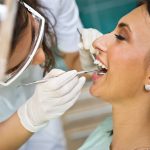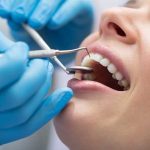Naturally Regrow Bone Around Teeth: A StepbyStep Guide

Regrowing bone around teeth is a fascinating biological process that can help restore dental health and improve overall wellness. When a patient suffers from periodontitis, a severe form of gum disease, the bone around their teeth can begin to deteriorate, leading to tooth loss and other oral health issues. However, with the right knowledge and care, it is possible to promote the natural regeneration of bone tissue around teeth, helping to preserve the patient’s smile and prevent further dental problems. In this step-by-step guide, we will explore the science behind bone regrowth in the mouth and provide practical tips for patients who want to promote this process. From dietary changes to specialized oral hygiene techniques, there are many ways to support the natural healing of bone tissue and prevent the need for invasive procedures like dental implants or bone grafts. Whether you are struggling with periodontitis or simply want to maintain optimal dental health, this guide will provide you with the information you need to achieve your goals.
Maintaining healthy teeth and gums is crucial for overall health and well-being. Poor oral hygiene can lead to a host of dental problems such as cavities, gum disease, and tooth loss, which can impact one’s ability to eat, speak, and smile confidently. The presence of gum disease has also been linked to other serious health conditions such as heart disease, stroke, and diabetes. Therefore, it is essential to have a good oral hygiene routine that includes brushing twice a day, flossing daily, and regular visits to the dentist to prevent and detect any dental problems early on. By taking care of our teeth and gums, we can not only improve our oral health but also our overall health and quality of life.
Bone loss around teeth is a common issue that is caused by periodontal disease, which is a chronic bacterial infection that affects the gum tissue and the bone supporting the teeth. This condition can lead to the loosening and eventual loss of teeth, as well as other serious health problems. The loss of bone around teeth can be caused by a number of factors, including poor oral hygiene, smoking, genetics, and certain medical conditions. Fortunately, there are steps that can be taken to naturally regrow bone around teeth, including implementing a healthy diet, practicing good oral hygiene, and seeking professional dental care. By taking these steps, individuals can improve their overall oral health and prevent further bone loss.
Understanding The Causes Of Bone Loss Around Teeth

Bone loss around teeth, also known as periodontal disease or periodontitis, is one of the most common dental problems that affects millions of people worldwide. The condition is characterized by the gradual loss of tissue and bone that support the teeth, leading to loosening and eventual loss of teeth. The primary cause of bone loss around teeth is the accumulation of bacteria and plaque on the teeth and gums, which triggers an inflammatory response in the body. This response causes the bone and tissue to break down, leading to the formation of pockets between the teeth and gums. As the condition worsens, these pockets deepen, allowing more bacteria to accumulate, and the bone loss process continues. Other factors that contribute to bone loss around teeth include genetics, smoking, diabetes, and poor oral hygiene. Genetic factors can make some people more susceptible to periodontal disease, while smoking and diabetes can impair the body’s ability to fight infections and heal damaged tissues. Poor oral hygiene can also lead to the accumulation of bacteria and plaque on the teeth and gums, which can exacerbate the condition. In addition, factors such as stress, poor nutrition, and certain medications can also contribute to bone loss around teeth. Understanding the causes of bone loss around teeth is essential in developing effective prevention and treatment strategies to promote healthy teeth and gums.
There are various factors that contribute to bone loss around teeth, including poor oral hygiene, smoking, genetics, age, hormonal changes, and certain medical conditions such as osteoporosis and diabetes. When plaque and bacteria build up around the teeth, it can lead to inflammation and infection in the gums, which in turn can cause the bone to gradually recede. Smoking can also exacerbate this process, as it reduces blood flow to the gums and impairs the body’s ability to fight infection. Additionally, genetics, age, and hormonal changes can all affect the body’s ability to produce and maintain healthy bone tissue, while medical conditions such as osteoporosis and diabetes can weaken the bones and make them more susceptible to damage. By addressing these underlying factors and implementing a comprehensive oral care routine, it may be possible to naturally regrow bone around teeth and improve overall dental health.
Periodontal disease is a common dental problem that affects many individuals worldwide. It is a chronic inflammatory condition that can lead to the destruction of the bones and tissues that support the teeth. One of the primary ways this disease affects the oral health of an individual is through gum recession. When the gums recede, the root surface of the teeth becomes exposed, leading to the buildup of bacteria and plaque. This buildup can cause infections that can extend to the bones, leading to bone loss. The bone loss can be significant and can cause the teeth to become loose and eventually lead to tooth loss. Therefore, it is crucial to prevent gum recession and periodontal disease by maintaining proper oral hygiene and seeking early treatment if any symptoms arise.
Poor nutrition and lifestyle factors can contribute to bone loss by depriving the body of essential nutrients needed for healthy bone growth and maintenance. A diet lacking in calcium, vitamin D, and other essential vitamins and minerals can weaken bones over time, making them more susceptible to fractures and other injuries. Smoking and excessive alcohol consumption can also contribute to bone loss by reducing the body’s ability to absorb calcium and other nutrients. Additionally, a sedentary lifestyle and lack of exercise can weaken bones and lead to loss of bone density. These factors can all have a cumulative effect on bone health, making it important to adopt a healthy lifestyle and diet to promote strong, healthy bones.
Natural Remedies To Promote Bone Regrowth

Bones are the fundamental parts of our body, which provide structure, support, and protection to our organs. Regrowth of bone is a natural process, but with age, the rate of bone regeneration slows down, and it becomes a challenging task to promote bone regrowth. However, there are various natural remedies that can help in promoting bone regrowth, especially around teeth. One of the most effective natural remedies is the consumption of foods rich in calcium, vitamin D, and magnesium. These nutrients are essential for healthy bone growth and help in the regeneration of bone tissue. Foods such as dairy products, leafy greens, nuts, and seeds are excellent sources of these nutrients and should be incorporated into your diet to promote bone health. Another natural remedy that can help in promoting bone regrowth is the use of essential oils. Essential oils such as peppermint, tea tree, and clove oil have antibacterial and anti-inflammatory properties that help in preventing infections and reducing inflammation around the tooth. These oils can be used topically by massaging around the affected area or can be added to warm water and used as a mouth rinse. Regular use of essential oils not only promotes bone regrowth but also helps in maintaining overall oral health. In conclusion, natural remedies are an excellent way to promote bone regrowth around teeth. By incorporating foods rich in essential nutrients and using essential oils, you can improve your bone health and prevent tooth loss.
A healthy diet plays a crucial role in promoting bone regrowth around teeth. Adequate intake of essential vitamins and minerals, such as calcium, vitamin D, and phosphorus, is necessary for optimal bone health. These nutrients are vital in the formation and maintenance of bone tissue. In addition to this, avoiding sugary and acidic foods and beverages can help prevent tooth decay and gum disease, which can lead to bone loss. A diet rich in fruits, vegetables, lean proteins, and whole grains can promote overall oral health and support bone regrowth around teeth. Adopting a healthy diet, along with proper oral hygiene practices, can help ensure the longevity of your teeth and maintain a healthy smile.
There are several nutrients and supplements that can help support bone health, which is important in the natural regrowth of bone around teeth. Calcium, magnesium, and vitamin D are essential for building and maintaining strong bones. Vitamin K2 is also important in bone health as it helps regulate calcium absorption and distribution in the body. In addition, collagen supplements can help improve bone density and strength. Omega-3 fatty acids have also been shown to have a positive effect on bone health by reducing inflammation and improving bone metabolism. Incorporating these nutrients and supplements into a healthy diet can help support the natural regrowth of bone around teeth and maintain overall bone health.
Natural remedies like oil pulling and herbal mouthwashes have been used for centuries as a way to maintain good oral health. Oil pulling involves swishing oil, typically coconut or sesame oil, in the mouth for several minutes to reduce harmful bacteria and improve gum health. Herbal mouthwashes, made with ingredients like cinnamon, clove, and tea tree oil, can also help to kill bacteria and freshen breath without the harsh chemicals found in conventional mouthwashes. While these natural remedies may not be a cure-all for serious dental issues, incorporating them into a daily oral hygiene routine can help support overall oral health and prevent future problems.
Professional Treatments For Bone Regrowth
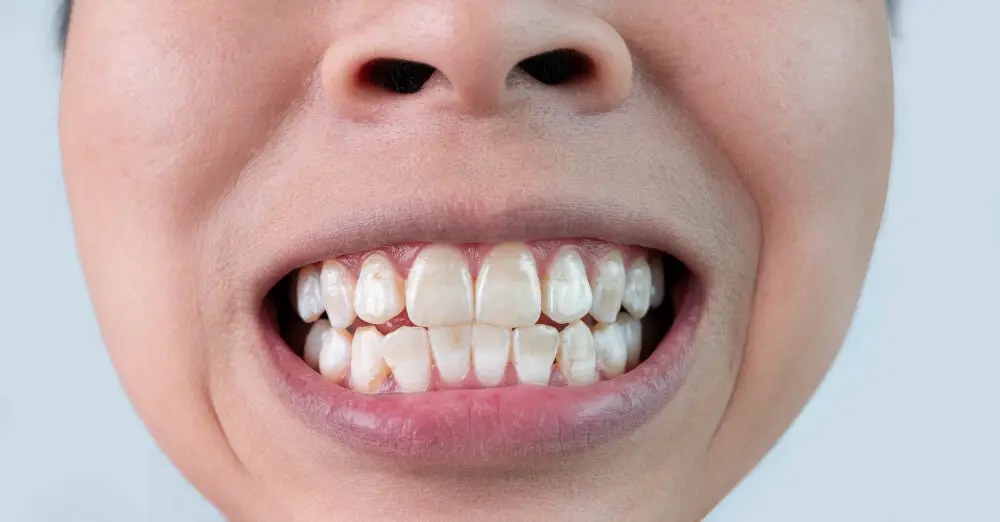
Bone regrowth is a process that occurs naturally in the body, but sometimes, professional treatments are needed to stimulate and accelerate the process. In the context of regrowing bone around teeth, there are several options available to patients who are seeking to improve their oral health and restore their smile. One of the most common professional treatments for bone regrowth is called bone grafting. This involves taking bone from another part of the patient’s body or from a donor source and transplanting it to the area where new bone is needed. The transplanted bone acts as a scaffold for new bone growth, and over time, the patient’s body will replace the transplanted bone with its own new bone tissue. Bone grafting is a safe and effective procedure that has been used for decades to help patients with bone loss due to a variety of causes, including periodontitis. Another professional treatment for bone regrowth is called guided tissue regeneration. This involves using a barrier membrane to separate the gum tissue from the bone tissue, allowing the bone to regenerate without interference from the gum tissue. The barrier membrane is made of a biocompatible material that is placed between the gum tissue and the bone tissue. This creates a space where new bone tissue can grow, while preventing the gum tissue from filling in the space and inhibiting bone regrowth. Guided tissue regeneration is a minimally invasive procedure that can be done in a dental office, and it has been shown to be effective at regenerating bone tissue around teeth that have been affected by periodontal disease. Overall, professional treatments for bone regrowth can be an important part of the process of regrowing bone around teeth, and patients should discuss their options with their dentist or periodontist to determine which treatment is right for them.
There are several professional treatments available to promote bone regrowth, which can help to restore the supporting structures around teeth. These treatments include bone grafting, guided tissue regeneration, and dental implants. Bone grafting involves transplanting bone from another part of the body or using synthetic materials to stimulate bone growth in the jaw. Guided tissue regeneration involves placing a barrier membrane around the affected area to encourage the growth of new bone and tissue. Dental implants involve placing a metal post into the jawbone, which serves as an anchor for a replacement tooth. Each of these treatments has its own advantages and disadvantages, and the best option for an individual depends on their specific needs and circumstances.
Bone grafting and guided tissue regeneration are two commonly used procedures in dentistry to regrow bone around teeth. Bone grafting involves taking bone from another part of the body or using a synthetic material to fill in the area where bone is missing. The graft provides a framework for new bone to grow, and eventually, the graft is replaced by the patient’s natural bone. Guided tissue regeneration involves using a membrane to cover the bone graft and prevent the growth of unwanted tissue, such as the gum tissue. This allows the bone to regenerate and attach to the tooth root, supporting the tooth and preventing further bone loss. Both bone grafting and guided tissue regeneration are effective methods for regrowing bone around teeth and restoring oral health.
Laser therapy has been gaining popularity as a non-invasive and effective treatment for various dental issues, including periodontal disease. By using a high-powered laser to remove infected tissue and stimulate the growth of healthy tissue, laser therapy can help promote natural bone regrowth around teeth. Other advanced treatments, such as growth factors and bone grafts, can also be used to aid in the regeneration of bone. With these innovative techniques, patients can now achieve significant improvements in their oral health without the need for invasive surgeries or long recovery times.
Maintaining Healthy Teeth And Gums
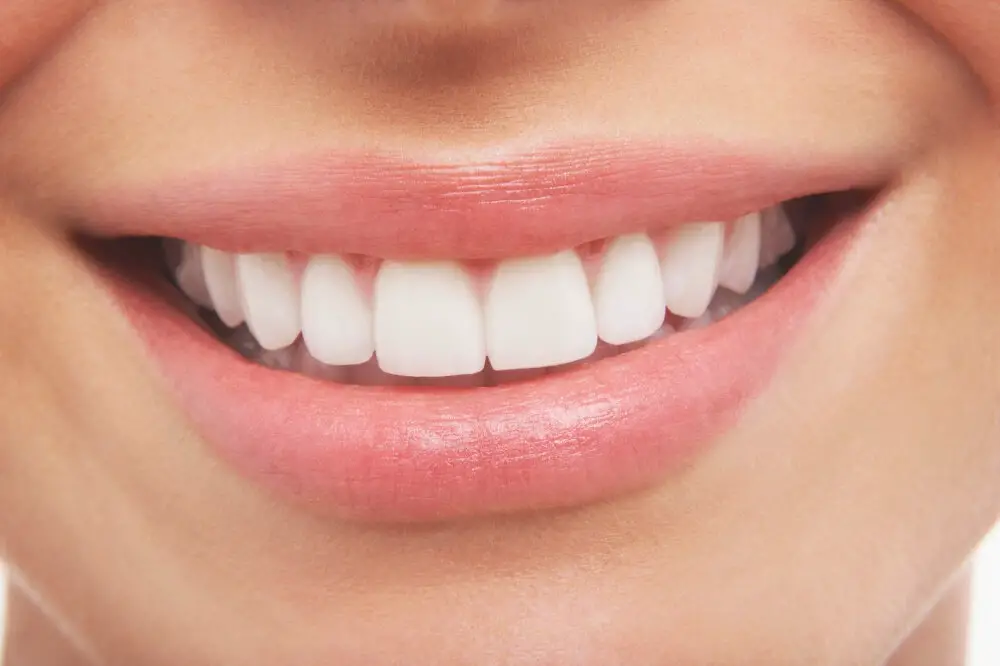
Maintaining healthy teeth and gums is essential for good oral health and overall well-being. Brushing your teeth twice a day, flossing daily, and visiting the dentist regularly are all important steps in keeping your teeth and gums healthy. Brushing your teeth removes plaque and bacteria that can cause cavities and gum disease, while flossing helps remove food particles and bacteria from between your teeth and gums. Regular dental checkups allow your dentist to detect any problems early on and treat them before they become more serious. In addition to these basic steps, there are several other things you can do to maintain healthy teeth and gums. Eating a balanced diet that is rich in vitamins and minerals, particularly calcium and vitamin D, can help keep your teeth and gums strong. Avoiding sugary and acidic foods and drinks can also help prevent tooth decay and erosion. Finally, quitting smoking and limiting alcohol consumption can also improve your oral health and reduce your risk of developing gum disease and other health problems. By taking these steps, you can maintain healthy teeth and gums for a lifetime.
Maintaining good oral hygiene and seeking regular dental care is crucial for the overall health of our teeth and gums. Neglecting dental care can lead to a number of serious oral health problems such as gum disease, tooth decay, and even tooth loss. Regular brushing, flossing, and rinsing with mouthwash can help prevent the buildup of harmful bacteria and plaque on our teeth and gums. It’s also important to schedule regular dental check-ups and cleanings to ensure any potential issues are caught early and addressed promptly. By taking care of our teeth and gums on a regular basis, we can not only improve our oral health but also our overall well-being.
Regular dental checkups play a crucial role in preventing bone loss around teeth. During these checkups, dentists can identify early signs of gum disease, which is one of the leading causes of bone loss. Gum disease occurs when the bacteria in plaque build up on teeth and gums, causing inflammation and infection. This can eventually lead to bone loss around the teeth, which can result in tooth loss and other oral health issues. By identifying and treating gum disease early on, dentists can help prevent bone loss and preserve the overall health of the teeth and gums. Additionally, regular cleanings and checkups can help remove plaque buildup and keep the gums healthy, reducing the risk of bone loss even further.
Maintaining good oral health is essential for overall wellbeing. Lifestyle factors play a crucial role in keeping teeth and gums healthy. Poor diet, smoking, excessive alcohol consumption, and lack of physical activity can all contribute to the development of gum disease and tooth decay. On the other hand, a balanced diet rich in essential nutrients, regular exercise, proper brushing, flossing, and routine dental check-ups can promote healthy teeth and gums. Additionally, reducing stress levels and avoiding habits such as clenching and grinding teeth can help prevent damage to teeth and support the natural regeneration of bone around the teeth. By adopting healthy lifestyle habits, individuals can promote optimal oral health and reduce the risk of dental problems.
Bone regrowth is essential for maintaining healthy teeth and gums. As we age, bone density naturally decreases, leading to tooth loss and gum disease. However, with proper care and attention, we can encourage the body to regrow bone tissue, which not only helps to keep teeth in place but also supports healthy gums. This process of bone regrowth can be achieved through a combination of a healthy diet, regular exercise, good oral hygiene practices, and targeted treatments such as bone grafting or guided tissue regeneration. By taking these steps, we can help to ensure that our teeth and gums remain strong and healthy for years to come.
Bone regeneration around teeth is a complex process, but there are certain steps individuals can take to promote bone regrowth. Firstly, maintaining good oral hygiene is key to preventing periodontal disease, which can lead to bone loss around teeth. Secondly, incorporating bone-healthy foods such as leafy greens, dairy products, and nuts in your diet can provide the necessary nutrients for bone growth. Thirdly, quitting smoking is crucial since smoking has been known to hinder bone regeneration. Additionally, reducing stress levels through exercise and relaxation techniques can help promote bone regrowth. Lastly, visiting your dentist regularly can help detect any bone loss early on and prevent further damage. By following these steps, individuals can naturally regrow bone around teeth and maintain a healthy smile.
Seeking professional dental care when necessary is crucial for maintaining good oral health. While home remedies and over-the-counter products can provide temporary relief, they cannot replace the expertise of a dental professional. Regular dental check-ups can detect and address any potential issues, preventing them from developing into more serious problems. Neglecting dental care can result in tooth decay, gum disease, and even bone loss, which can ultimately lead to tooth loss. By seeking professional dental care, individuals can ensure that their teeth and gums remain healthy and strong, which can contribute to their overall well-being and quality of life.
Conclusion
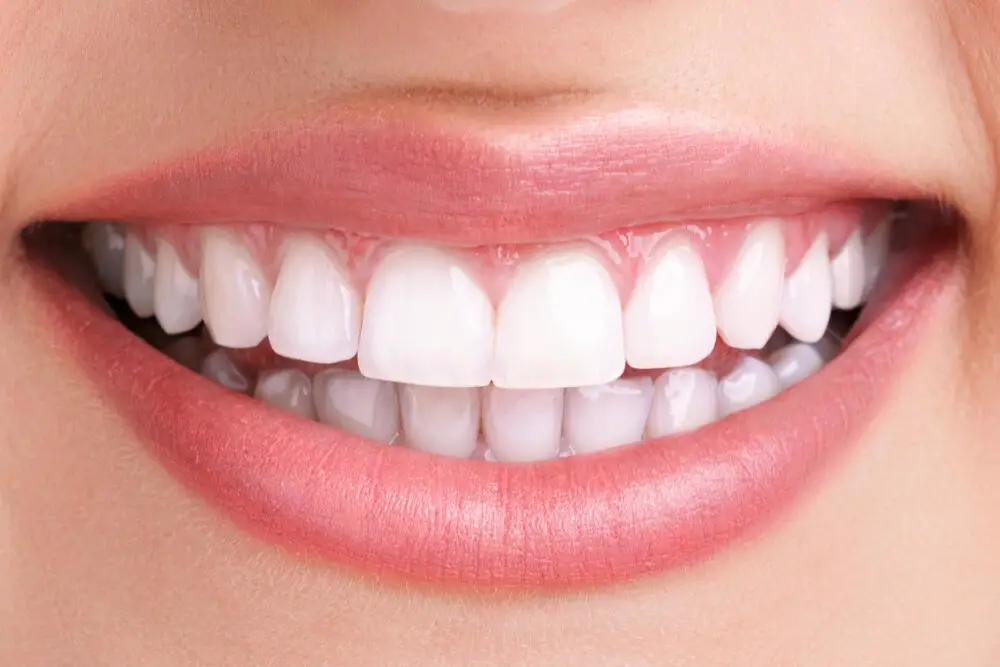
In conclusion, regrowing bone naturally around teeth is a complex process that requires patience, discipline, and commitment. However, with the right steps and guidance, it is possible to improve the health of your teeth and gums and restore lost bone tissue. By adopting a holistic approach that involves a healthy diet, regular exercise, proper oral hygiene, and natural remedies, you can stimulate the growth of new bone cells and prevent further damage to your teeth and gums. Remember to consult with your dentist or healthcare provider before embarking on any new treatment plan, and stay vigilant in your efforts to maintain good dental health. With time and effort, you can achieve a healthier, more vibrant smile that will last a lifetime.




